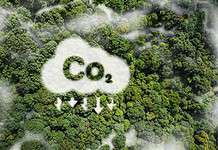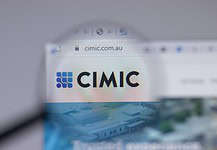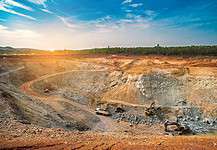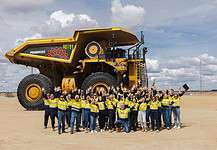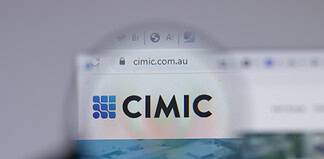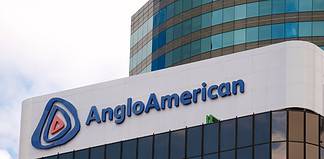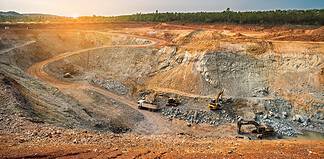BIOKEM is in the business of reducing maintenance costs and increasing equipment and lubricant life, taking oil analysis and filtration service to the highest levels.
It offers a holistic approach to the treatment of the system circuitry, analysing and cleaning not just the lube oil but the equipment itself.
BioKem Business and Technical manager, John Lagos, likens the service BioKem provides to a full health check, complete with remedies for any problems detected.
In his words, they are the medics of the industrial world.
The company uses industry-leading equipment and 70 years of expertise to offer broad sweeping lube oil services capabilities with a personal touch.
Its job can start with the lubricant oil received directly from lubricant suppliers, cleaning it to your OEM requirements of filtration to satisfy the needs of, for example, Solar, GE, Caterpillar and Siemens rotational equipment.
New issue oil does not meet the required OEM specification unless it is ordered as a ‘certified clean lubricant’.
The lubricant is then freighted to site as part of the total service provided by BioKem Oil Services.
A wide range of fluid degradation issues can affect lube oil systems including the presence of sludge and varnish.
These substances contribute to sticking control/servo valves, incorrect instrument readings and wear and corrosion due to deposits forming on wetted surfaces of the lubricant system.
By applying powerful laboratory analysis tools, BioKem can very specifically identify and provide individualised solutions for each machine and prescribe a suitable service or hire solution.
Varnish mitigation
For high level varnish mitigation, the company employs the use of a patented Electrophysical Separation Process (ESP).
This process can be carried out while the equipment is operational, and the system is at operating temperature.
The varnish is mitigated in a solution state, negating the requirement for a programmed shut, reducing downtime and further revenue loss.
ESP uses resin filtration media that trap the varnish particles and remove them from circulation.
Filters used by BioKem for cleaning systems of particles are constructed from the highest quality micro-fibrous glass filtration media providing absolute filtration to 99.99pc (Beta 1000).
The media is layered to achieve optimal performance characteristics.
BioKem uses ‘OilQuip’ brand filter elements that are suitable in the most demanding applications and are designed and tested to provide the highest level of efficiency with the maximum dirt holding capacity.
All OilQuip filter elements have particulate removal efficiencies of Beta (c) > 1000 which is based on ISO 16889-1999 testing standards.
They are available in a wide range of sizes to suit a range of applications from 2.5 up to 22 microns.
Once lubricant testing is complete, a detailed analysis of the sampling identifies issues which BioKem will then address.
“If the lubricant is still not up to standard and is well below specification, the next step is a system varnish service to remove it from walls and surfaces of the lube system,” Mr Lagos said.
This may include a complete system lube oil change and flush with a confined space internal tank clean.
Water removal
For removing water, BioKem utilises portable Vacuum Dehydration Oil Purification Systems (VDOPS).
The mobile VDOPS can operate on a kidney loop mode while plant and equipment remains operational and online, allowing production to proceed without interruption.
BioKem’s complete oil filtration process will clean the lube oil system to well under OEM specs, ensuring the system will operate at longer life span and at much higher efficiency.
Reducing chance of failure during commissioning (the front end of the ‘bathtub curve’) is the company’s objective.
Lubricant analysis beyond lab testing
BioKem offers a high-level lubricant sample analysis with results that are more comprehensive than standard conditioning monitoring services.
BioKem CEO, James McAllister, said that its testing facilities provided analysis well beyond what other Australian based laboratories have the capability to perform.
“These tests, such as MPVP, are very specific tests for system varnish and provide a comprehensive report to the customer which determines the course of action they need to take.
It’s prescriptive”, he said.
The samples are tested with an array of methods and the results reviewed at a senior level.
Other tests may be ordered and then a full report is provided to help understand what is happening within the lubricant system.
A positive test for the presence of water above saturation point, for example, will have a detrimental effect on the oil and asset life.
In these circumstances BioKem will send its own equipment to the site and remove the free, dissolved and emulsified water to get the oil back to specification.
BioKem offers its services for any size oil systems from small to large.
The company has a range of equipment for all jobs, so can offer its thorough and complete service on demand.
“We are both a rental and service provider,” Mr McAllister said.
“But in addition to that we will conduct our own laboratory analysis of the problem prior to acting.
“This means we can tailor the rental or service to best meet the requirements of our customer and the issues they are experiencing.”
In some cases the equipment may need a higher-grade or better designed filter media which they can specify and supply.
In some instances, the system may experience electrostatic discharge (ESD) – this can be combatted by filters that reduce the build-up of static electricity and prevent hot-spotting in the oil.
ESD is easy to pick in a live system as you can audibly hear the whipcrack sound of the static as it discharges in the filter housing.
ESD or hot-spotting can generate static electricity at a very high voltage and extremely high temperatures that causes deterioration of components and the lubricant.
In this event, BioKem has a range of products and equipment to reduce the effects of ESD in the system and effect on the filters.
Filters S.p.A.
BioKem is now the sole Australian distributor for Italian manufacturer Filters S.p.A., supplying these equipment and parts locally.
Filters S.p.A. equipment is the gold standard manufacturer for liquid fuel pump skids, consoles, oil mist eliminators, seal gas panels, ejector skids and more.
Filters S.p.A. also offers a considerable range of filtration components, filters and packages customised to site requirements in terms of dimensions, materials and filtration elements.
BioKem is now able to offer exclusive Filters S.p.A products, such as the Fuel Gas Valve Skid which has an operation condition of up to 2500 Nm3/h, and the Fuel Gas Treatment Skid for gas turbines which can be customised to customer specification.
Many OEMs include their equipment as part of their componentry, and Biokem is now able to offer local support and supply for all companies seeking S.p.A. parts.
BioKem’s 70 years of experience is reflected in its outstanding oil primary services which include pre-commissioning, maintenance, contaminant event correction and hot oil flushing of lubricant circuits across Australia, tailored to meet equipment and site based individual requirements.
BioKem is supported by a comprehensive, national engineering team with the capacity to offer superior, advanced analysis and solutions to any oil / system problem.
For more information
0491 203 024
07 3286 6122
[email protected]
biokem.com.au


